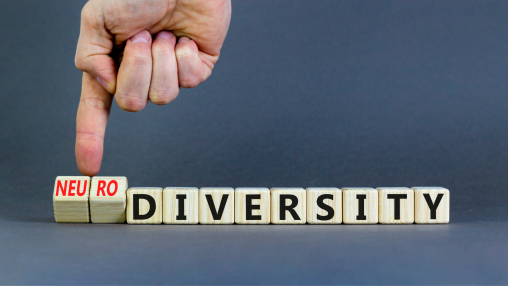
Share this article
At CLP, we believe every person has a brain that is unique to them; no two brains are quite the same.
And this is where strength lies when it comes to neurodiversity. It offers a power of difference especially as it is estimated that 15% of the population in the UK are neurodivergent.
But unfortunately, in the workplace, neurodiversity isn’t always viewed this way. Instead, the neurodiverse can face bias and a lack of understanding.
Businesses that do not recognise the power workplace diversity can offer are greatly undervaluing the opportunity that is available to them.
Diversity is key to the development and progression of any organisation. Hiring a neurodiverse workforce comes with huge benefits and allows companies to access a wider talent pool.
Neurodiversity can empower the workplace and encourage creativity, new ideas and fresh perspectives.
Highly Desirable Skills and Attributes of Neurodiverse
Neurodiversity doesn’t have to be viewed as negative. Those with neurological differences such as ADHD, dyspraxia, dyslexia, dyscalculia, or autism often exhibit great strength in certain areas.
As well as their individual strengths, neurodivergent employees often possess highly desirable skills and attributes, such as:
- Reliability, conscientiousness and persistence
- High levels of concentration
- Detailed factual knowledge and an excellent memory
- Attention to detail and the ability to identify errors
- Strong technical abilities in their specialist areas
- Creativity, especially in visual or spatial or process activities
- High levels of intellect
- The ability to look at the bigger picture and think laterally
However, regardless of these skills, there is still a neurodiversity gap in many organisations. If you want to unlock potential, difference needs to be accepted and embraced.
Challenging Stereotypes
Neurotypical people have endemic privilege within society and there is a huge gulf between the perception of how they think the neurodiverse are supported and the neurodiverse lived experience.
There is still so much stigma around neurodiversity that the first step is to challenge negative assumptions. Instead there needs to be a focus on the strengths of being neurodiverse and a redirection to how these strengths can be useful within the workplace.
Creating A More Inclusive Workplace
To create a more inclusive workplace, businesses often create neurodiversity policies. However, neurodiversity in policies doesn’t bring about a more inclusive workplace if it is only a tick-the-box exercise. Neurodiversity and acceptance within an embodied culture is what brings about real change and inclusivity.
The first question that needs to be considered is ‘who writes the policies?’ The best policies are co-produced with the neurodiverse employees but how many leaders at the top are neurodiverse, as opposed to leaders philanthropically giving roles to neurodiverse individuals and making policies to support them?
To create a real and systemic change, the neurodiverse need to be in place in every tier in an organisation.
Adopting Good Practice
To adopt good practice, an organisation needs to remove the notion of awareness, as awareness is meaningless if no action is taking place. Awareness is a passive action so being more active around acceptance and good practice is more important.
To do this you should utilise the neurodivergent people you already have within your organisation. But also bring in external neurodivergent consultants who can raise levels of understanding and help you focus on individuals.
Listen to what the neurodivergent within your organisation are telling you and create meaningful neurodivergent policies with these views in mind. Then make sure each level of your workplace adopts these policies and reinforces them.
However, be aware and sensitive to the fact that the neurodivergent within your organisation might not feel comfortable explaining what they need, which is why external consultants are important.
These employees could have faced barriers throughout every stage of their lives and this level of trauma can create blocks to challenging it. Often, they might not know what they need as it has never been explored. Again, an external consultant will be able to guide you through the process.
But, in the end, listening is key.
Steps You Can Take to Create a More Neurodiverse Workplace
At CLP we have recognised the need to encourage acceptance of neurodiversity in the workplace. To do this we have created a module that can be added to any of our leadership courses. The module focuses purely on understanding neurodiversity, accepting what difference can offer, challenging biases around it and taking away any barriers to neurodiversity in the workplace.
Our mix-and-match approach to our courses means it is easy for us to include this module in any of our Learning and Development programmes.
To learn more, contact us today.